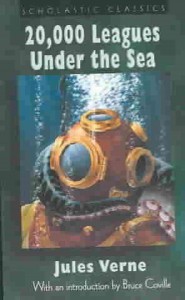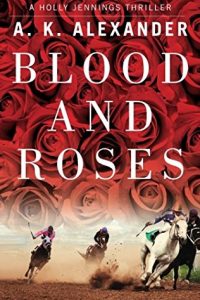This small bit of wisdom first appeared on my blog in 2013.
Many folks are focused on rankings, so given that there has to be the best of everything, it stands to reason that there also has to be the worst. The worst plumber, the worst bus driver, the worst brain surgeon (oh please!), the worst airline pilot (oh double please!), and so on.
And somewhere—oh yes, somewhere—there has to be the worst manuscript.

“Mike? Génial écriture entraîneur, mes amis!” – Jules Verne
Having served as a writing coach and editor since as far back as when Jules Verne was one of my students, I’ve read and evaluated manuscripts easily numbering into the four digits. Obviously, I have more than my share of nominees for that dubious distinction. Now, I’m not out to embarrass anyone, so I’ll be real generic about my selection. My purpose is to make a key point.
I chose my top nominee not only for the lack of quality in the manuscript itself, but also for the reaction of the writer to the critique. This happened a few years ago with a writer from back east (When you live in California, everyone is back east.) Although the writer had a potentially compelling premise for her novel, as indicated by the accompanying synopsis, the writing fell short in just about every area possible, and it took a long and painful effort on my part to get through it. But like everything else that is broken, there is always the chance of fixing it.
So I did my job and wrote one of the longest and most detailed evaluations of my career, not to mention marking up the manuscript itself. I sent the evaluation to the writer in advance of our phone meeting with a warning that it was undoubtedly not what she’d hoped to hear but what she needed to hear, and that we would go through everything during our phone meeting.
 Well, guess what: the meeting never happened. The enraged writer sent me a nasty-gram railing at my incompetence and saying that she did not agree with a single thing I said regarding her gem. Our working relationship was over. Shocked the hell out of me, as this was one of the rare problematic clients I’d encountered in my career. I had to wonder: why did she come to me in the first place? Not for help in becoming a more skillful writer. No, this was someone looking for validation that she had written the Great American Novel. Rare, but it had happened before—with manuscripts much better than that one. They make me glad that I take my fee prior to doing the work, otherwise the response could be, “I don’t agree with anything you said, so I’m not going to pay you.” That kind of thing can get ugly.
Well, guess what: the meeting never happened. The enraged writer sent me a nasty-gram railing at my incompetence and saying that she did not agree with a single thing I said regarding her gem. Our working relationship was over. Shocked the hell out of me, as this was one of the rare problematic clients I’d encountered in my career. I had to wonder: why did she come to me in the first place? Not for help in becoming a more skillful writer. No, this was someone looking for validation that she had written the Great American Novel. Rare, but it had happened before—with manuscripts much better than that one. They make me glad that I take my fee prior to doing the work, otherwise the response could be, “I don’t agree with anything you said, so I’m not going to pay you.” That kind of thing can get ugly.
The point is, if you want to write, and you want to get better at writing, and you seek the guidance of a professional—you should take to heart what that individual says. Does that mean we’re always right? No, of course not! But even the worst writing coach (there must be one of those, but darned if I know who that is) must have some experience and background for doing this kind of work. In my case, I’ve written over thirty novels, published over twenty, and have coached writers whose published works total well over a hundred. Even by osmosis I must know something.
The good news is, writers who react like my nominee are the rare exception and not the rule. I’ve seen many writers who, after reading my harsh evaluations, have turned their sows’ ears, into gleaming silk purses. Case in point: just last month a writer approached me with a completed first draft of a novel that had a most compelling premise. After reading the manuscript and compiling my notes I began inputting them by opening with what I refer to as my “four-word evaluation”: STRONG CONCEPT, WEAK EXECUTION. I followed that up, of course, with numerous pages of notes about a story that needed a ton of work in both content and presentation.
The writer’s reaction after reading the evaluation and spending time with me on the phone: “Thanks, Mike, this is exactly what I needed.”
He added that he’s new at this and could use all the help he can get. Needless to say, I’ll be working with this enthusiastic writer well into next year.
 Any wanna-be writer who thinks he/she knows it all should learn from the following: in a month or so I will working with Michele Scott (A.K. Alexander) on her next book, as I have for the majority of her published works, which are pushing nearly twenty. Michele is a bestselling author of cozy mysteries and thrillers, and she is doubtless more than capable of editing her own stories. But she won’t let a book go to her publisher without her “Yoda” putting his Jedi seal on it. Happy to work with her I am.
Any wanna-be writer who thinks he/she knows it all should learn from the following: in a month or so I will working with Michele Scott (A.K. Alexander) on her next book, as I have for the majority of her published works, which are pushing nearly twenty. Michele is a bestselling author of cozy mysteries and thrillers, and she is doubtless more than capable of editing her own stories. But she won’t let a book go to her publisher without her “Yoda” putting his Jedi seal on it. Happy to work with her I am.
Happy not to have the worst manuscript you should be.
